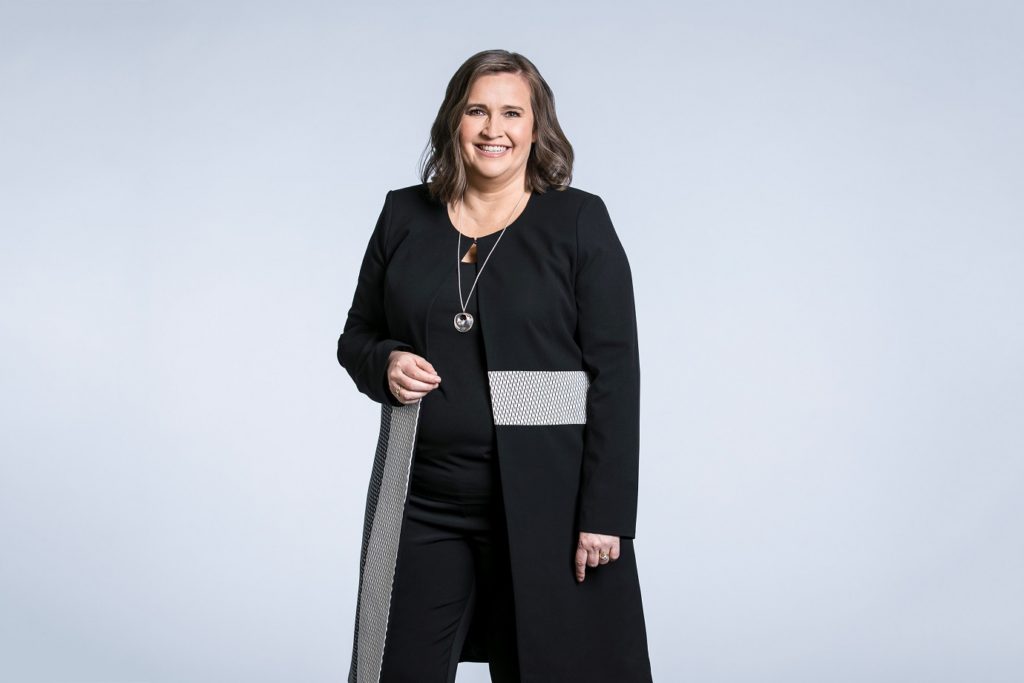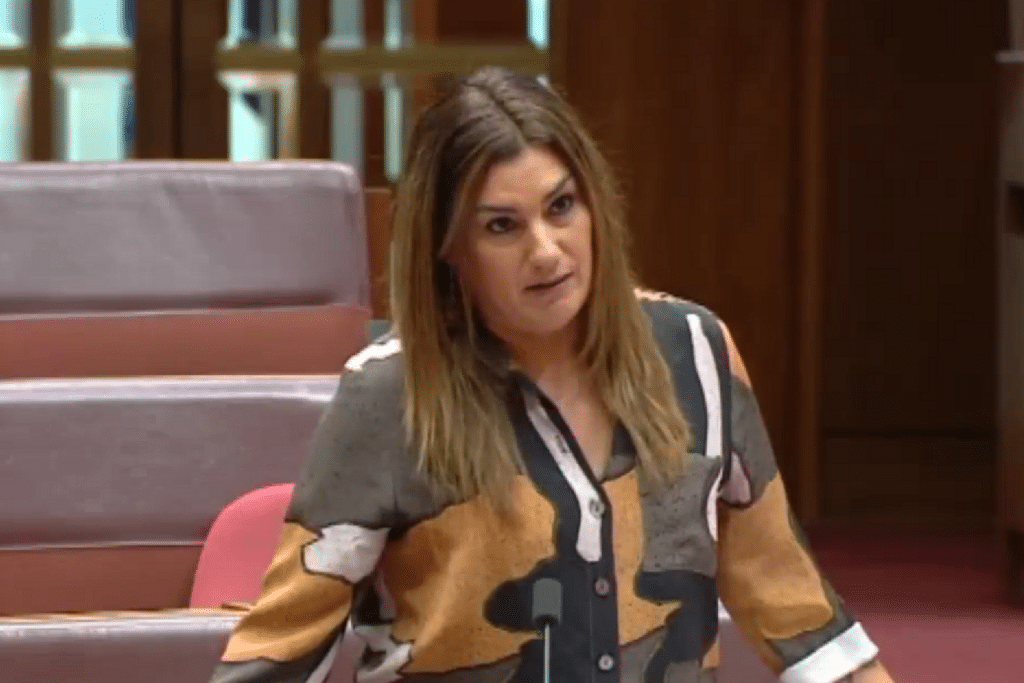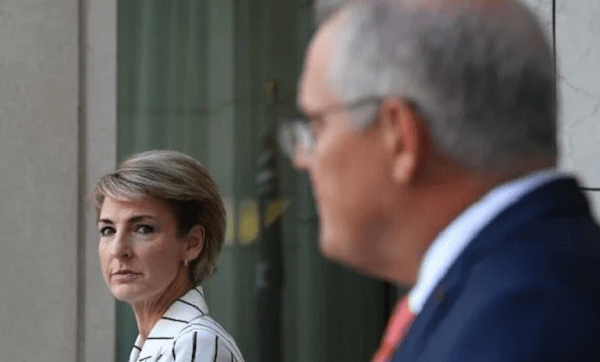Are we witnessing the unravelling of so much good work on pursuing an end to sexual harassment, bullying, and misconduct in Australian workplaces?
The past week in Australian politics — spurred on by a week of media headlines and front pages picking apart the private text messages on the phone that Brittany Higgins handed over to police — could certainly lead you to believe as much. The pursuit of Labor Senator Katy Gallagher and the “serious questions” she had to answer regarding when she knew about the allegations in 2021 included Liberal Senator Michaelia Cash accusing Labor of “weaponising” a sexual assault claim.
The past week comes after Kate Jenkins’ term as Sex Discrimination Commissioner ended in April. She was described as a trailblazer for her time in the role, especially regarding her Respect@Work report, examining sexual harassment in Australian workplaces. Following allegations raised by Brittany Higgins that she was raped in Parliament House, Jenkins also led a significant review into the workplace culture of parliamentarians in 2021, finding that one in three parliamentary staffers have experienced sexual harassment.
Significant progress has been made since these reports. The recommendations from the Respect@Work report saw legislation passed in 2022, including a meaningful shift that will soon see employers having a duty of care to ensure their workplace environments are free from sexual harassment. Jenkins’ parliament review, meanwhile, has seen behavioural codes of conduct implemented, and an overall much wider understanding of the standards parliamentarians must uphold.

Indeed, the past year in parliament – and we know that a change in government and rise of a female-dominated crossbench – appears, at least from the outside, to be providing a safer environment for women.
But the past week could leave you believing that no such reports, recommendations and discussions ever occurred.
Segments of the media have issued a relentless campaign against Brittany Higgins that has seen her photo splashed across multiple pages – alongside the contents of her private text messages, contained on the phone Higgins had nervously handed over to police as part of the investigation into sexual assault allegations.
The question of how these text messages got into the hands of the media is, thankfully, being asked more frequently now, than a week ago. But much of the damage has already been done. Victim survivors are witnessing what happens to a woman who comes forward with high-profile allegations of workplace-related sexual assault. Old tropes are being raised again about what a “good and believable rape victim” should look like before they are believed.
Meanwhile, cross-party allegations raised this week about Liberal Senator David Van, including by Senator Lidia Thorpe who accused him of sexual assault, and by former Liberal senator Amanda Stoker, who said Senator Van had “inappropriately touched” her at an informal gathering a parliamentary office, also highlight the work and clean up to do. Senator Van denies these allegations.
As Greens Senator Larissa Waters said today, the past week has been a “huge step backwards” for anyone out there who has experienced sexual harassment or assault. She asked what such victim survivors might be feeling upon seeing text messages shared across the media, alongside the tone of the conversation that has occurred in relation to sexual assault allegations this week.
Waters told ABC News Breakfast this morning that while it had been starting the feel like Parliament House had become a little safer, the fact the “politicisation of the sexual assault allegations raised by Brittany Higgins has dominated question time this week”, has made people feel, again, like Parliament House is far less safe than thought, and concerned by the idea that allegations can be weaponised and politicised.
In a separate interview this morning, Senator Lidia Thorpe said that parliament is unsafe for women, and that it retains a “toxic workplace culture towards women.”
She said that parliamentary workers have cried to her in the elevator due to feeling unsafe in the building at night, women she said won’t go to the authorities, or even to their supervisors but will go to Thorpe, because she has shared her story, raising allegations against another Senator in the House.
It’s been a toxic week. However, there have been greenshoots. They include Senator Katy Gallagher’s response in Parliament on Tuesday to the “serious questions” she had to answer which powerfully called out the media campaign risking the future safety of women in Australia. They also include Prime Minister Anthony Albanese highlighting how with just an estimated 13 per cent of sexual assault victims ever going to the police, events of the past week may be triggering for victims now and into the future.
They include the support Senator Lidia Thorpe said she had from her former party The Greens, when dealing with the allegations she raised this week.
And these greenshoots include the two (only two, sadly) Liberal party MPs backing an enquiry into how the text messages became public, including Bridget Archer who said those “observing the behaviour and the commentary” occurring in parliament and in the media may be disinclined to share their own experiences of sexual assault. She told ABC’s RN Breakfast today that the debate has been “really toxic”.

And the greenshoots” include Opposition Leader Peter Dutton publicly declaring that he is aware of further allegations against Liberal Senator David Van, in addition to allegations made in the Senate by Senator Lidia Thorpe, and his move to expel the Senator from the Liberal party room. Senator Van denies the allegations and any wrongdoing.
Dutton’s move may have appeared swift, but it now raises other questions regarding what was known of these particular allegations and when, and why more wasn’t done in the past. Still, it was a move showing that Dutton finally read the room, realising the Liberal Party’s push to prosecute the case of who knew what regarding Brittany Higgins’s rape allegations, was not doing it any favours with its already diminished women’s vote.
While publishing this piece this morning, Dutton took things one step further with Senator David Van, stating he should resign from parliament “and seek the help that he needs”.
Are these greenshoots enough to overcome a week of playing political football on allegations of sexual assault? Not entirely. Too much of the damage has been done when it comes to the trust victim survivors will have for politicians, police and other authorities in the future.

